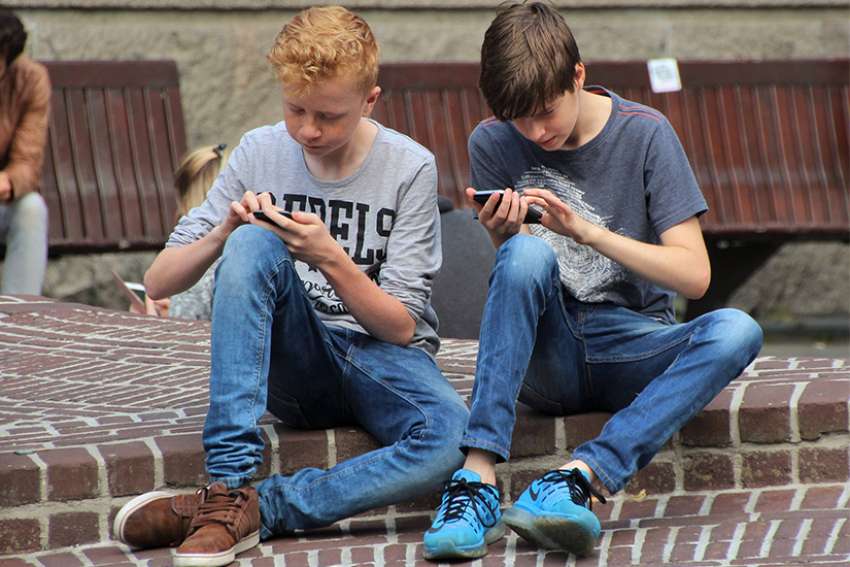In her book iGen: Why Today’s Super-Connected Kids Are Growing Up Less Rebellious, More Tolerant, Less Happy — and Completely Unprepared for Adulthood — and What That Means for the Rest of Us, Dr. Jean Twenge points out there are also benefits to obsessive, compulsive use of the electronic devices.
But overall, the picture painted is not pretty.
Which brings us to France and a government that is taking a bold step this year. Beginning in September, mobile phones will be banned from primary, junior and middle schools. It’s believed to be the first of its kind with such a national scope.
While phones are already prohibited in classrooms in France, now students won’t be allowed to use them on breaks, at lunch or between lessons, either. It will apply to all pupils from the time they start school at age of six up to about age 15 when they start secondary school.
Calling the ban a matter of “public health,” France’s education minister Jean-Michel Blanquer was quoted in an English-language publication called Local: “These days, the children don’t play at break time anymore. They are just all in front of their smartphones and from an educational point of view, that’s a problem.”
The ban, of course, will create logistic problems like consistent enforcement and penalties, how and where to store the phones during school hours, and arguments over their availability in case of an emergency.
Much research, from Dr. Twenge and others, back the phone ban. For example, the London School of Economics studied mobile phone use in high schools in London, Birmingham, Leicester and Manchester, and found academic performance improved where phones were prohibited. There is no national policy in Britain so some schools had a ban and others didn’t.
The study found test scores improved 6.4 per cent and that works out to be the equivalent of adding five days to the school year. “We found that not only did student achievement improve, but also that low-achieving and low-income students gained the most,” study authors and economists Louis-Philippe Beland and Richard Murphy told the BBC.
It’s been 10 years since the iPhone came to market, followed by Androids and other smartphones. The first generation to grow up and spend their entire adolescence with smartphones is now coming of age.
Even Steve Jobs, the Apple genius who brought so many of these electronic devices to market, strictly limited his children on their use of his technology gadgets. He was not alone among Silicon Valley executives who place strict parameters on their children’s screen time.
In France, teachers, parents and, of course, students are voicing concerns about the ban.
It’s easy to understand the students’ position, and even the teachers’ opposition, since they’re the ones who will have to enforce the new law, possibly with searches of students.
“The students are addicted to their phone, it’s a real plague,” teacher Xavier Bessière told Le Monde. “We close our eyes, that’s for sure, because we cannot fight. We would be the gendarme all the time.”
But parents’ opposition? That is more difficult to understand. All parents should want what’s best for their children.
“How is the school going to stock them? And how are they going to make sure they’re given back to the owner at the end of school?” Gérard Pommier, head of the Federation of Parents in State Schools, was quoted by several media outlets.
That seems like a pretty weak argument if the ban improves their children’s education. Besides, when New York City temporarily banned mobile phones, a cottage industry of lockers popped up charging $1 a day for storage. Something similar could be done in France. That seems like a small price to pay for better learning and improved mental and physical health for children.
Education minister Blanquier dismisses the discontent.
“In ministerial meetings, we leave our phones in lockers before going in. It seems to me that this is doable for any human group, including a class.”
From a parent with children now beyond high school, but still obsessed with their phones and screens, I say “Vive La France, Vive La France!”
Canadian politicians should watch what happens and do something similar here. Perhaps the separate school boards should step up and institute a ban, likely long before legislatures get around to acting.
(Brehl is a writer and author of several books.)

